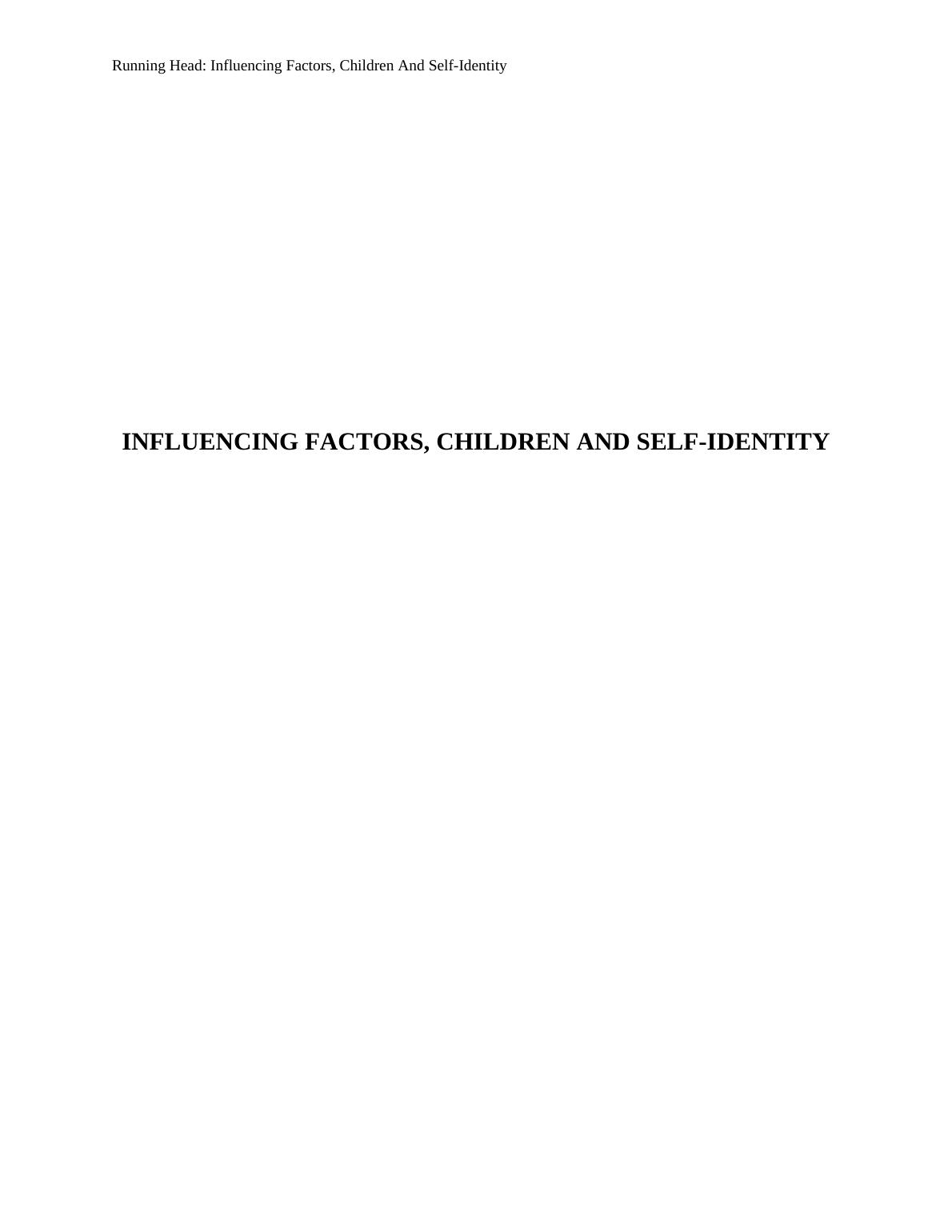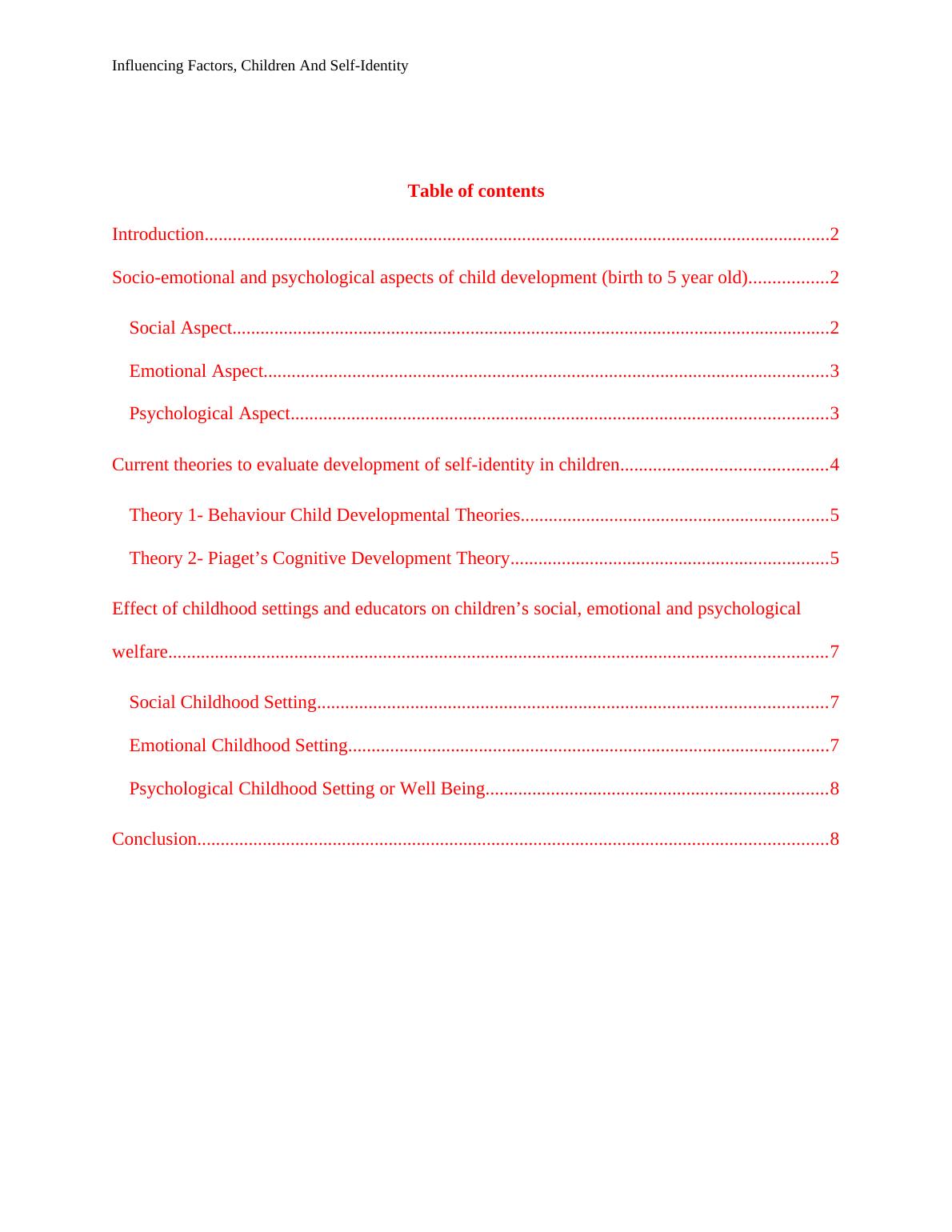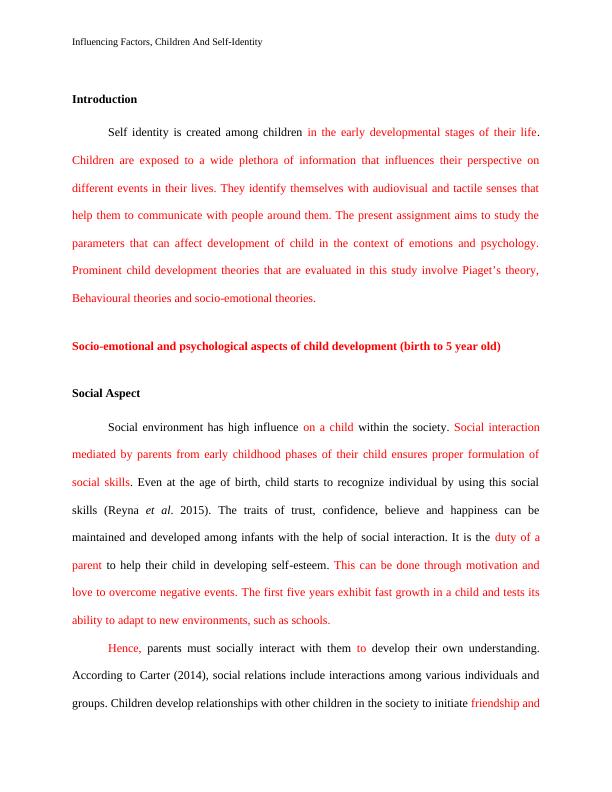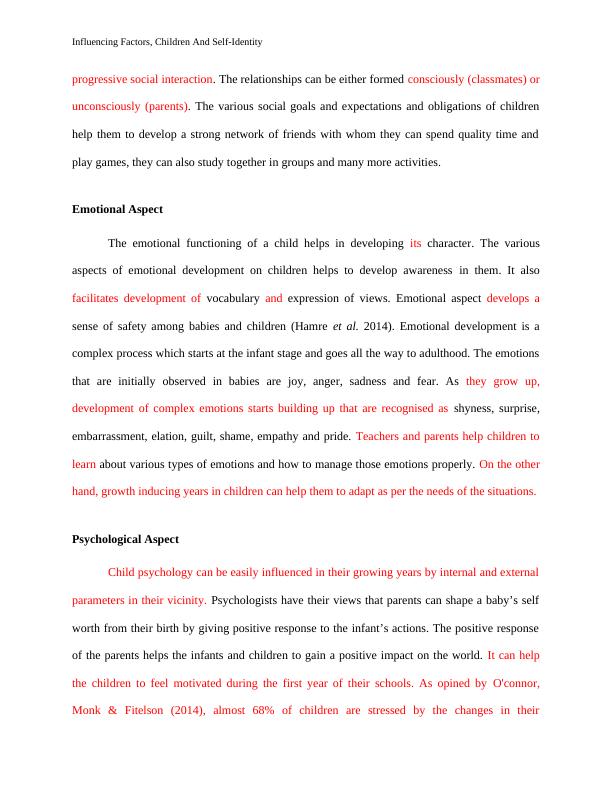Influencing Factors, Children And Self-Identity
12 Pages2903 Words295 Views
Added on 2023-06-08
About This Document
This study sheds light on the various social, emotional and psychological issues that are influencing the creation of self identity of children and infants. Prominent child development theories that are evaluated in this study involve Piaget’s theory, Behavioural theories and socio-emotional theories. The various settings that influence the development of infants have also been discussed. The various settings are social settings, emotional settings and psychological settings.
Influencing Factors, Children And Self-Identity
Added on 2023-06-08
ShareRelated Documents
End of preview
Want to access all the pages? Upload your documents or become a member.
ECCDD103A Management Report 2022
|9
|2417
|18
Early Childhood Development
|10
|2957
|413
Social, Psychological, and Emotional Aspects of Child Development
|9
|3262
|245
Developmental Psychology Studies Humans Across
|9
|2867
|15
THE CHILD DEVELOPMENT
|12
|2579
|25
Theories of Development and Learning - Early Childhood Stage:
|14
|3670
|64




